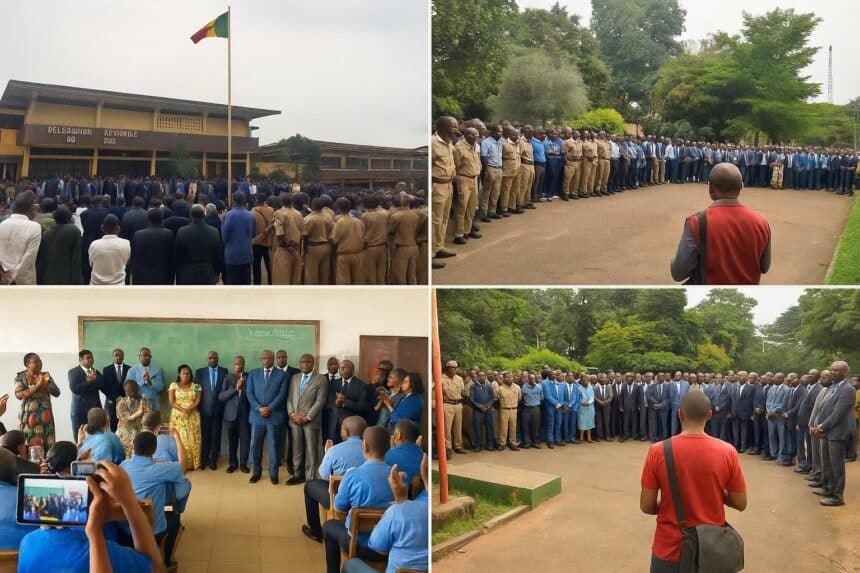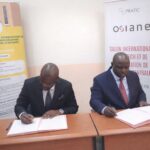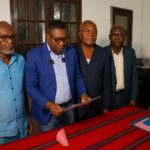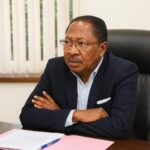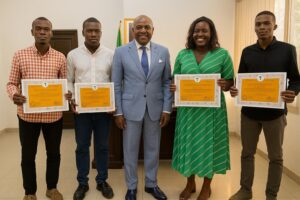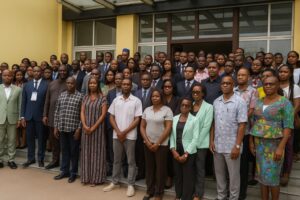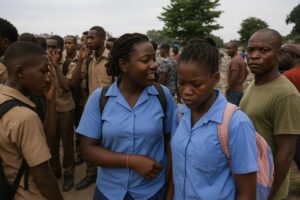Nationwide school reopening
Classroom bells echoed again across Congo on 1 October 2025 as public and private schools reopened for the 2025-2026 year, ending three months of vacation and bringing a cautious yet genuine return to routine learning for thousands of pupils.
In the capital Brazzaville, attendance appeared lighter than mid-term averages; however, chalk scratched boards, uniforms filled corridors and optimism filtered through morning assemblies, confirming that the symbolic first step into the new academic adventure had been taken.
To nurture that momentum, Education ministers Ghislain Thierry Maguessa Ebomé and Jean-Luc Mouthou embarked on a dawn tour of two emblematic secondary schools, Lycée Technique Commercial 1er Mai in Bacongo and Lycée de la Révolution in Ouenzé, both pulsating hearts of Congo’s knowledge network.
Ministers tour Brazzaville lyceums
The convoy arrived early enough to join flag-raising ceremonies. As the tricolour climbed the mast, pupils sang “La Congolaise” with crisp conviction, giving officials an audible measure of civic spirit that underpins government hopes for a disciplined, development-oriented generation.
Standing before packed courtyards, Minister Maguessa Ebomé reminded students that the anthem’s final line—“marchons unis”—also applies to homework, laboratory tasks and vocational workshops. “We need a youth fully prepared for our development challenges,” he declared, voice amplified by a portable speaker and spontaneous applause.
His counterpart for general education, Jean-Luc Mouthou, framed the morning as a “new departure” built on the President’s investment in classrooms, textbooks and digital labs. He urged unions, parents and donors to keep nine upcoming months free from disruption, so learners may focus on progress.
Discipline at heart of new year
Both ministers tied their speeches to the official theme of the year—work, discipline and rigor—a triptych already printed on banners fluttering above entrances. Their message echoed nationwide directives designed to curb absenteeism, lateness and exam malpractice that occasionally blemished previous sessions.
Christelle Fifie Mouelé, director against school fraud and violence, took the microphone briefly, warning that smartphones might be confiscated during assessments and that bullying would trigger immediate sanctions. “School is the pillar of collective and personal growth,” she told teenagers listening from shaded galleries.
Administrators nodded approvingly, aware that last year’s unified baccalaureate reform, piloted by Maguessa Ebomé, demands heightened integrity to maintain parity between technical and general streams. Early compliance this term will, they believe, secure smoother national exams next June.
Teachers urged to embrace reform
Although the spotlight fell mainly on pupils, the delegation spent time in staff rooms clarifying ministerial guidelines. Mouthou reminded teachers of their “moral contract” to open classes at 7 a.m. sharp, deliver full syllabuses and report infrastructural hiccups before they disrupt learning continuity.
Across chalk-stained tables, Maguessa Ebomé highlighted workshops scheduled later this month to help educators master the harmonised baccalaureate assessment grids. Successful alignment, he argued, will give every graduate—whether from carpentry or literature—equal credibility in universities and the labour market.
Teachers welcomed the clarification yet discreetly flagged logistical needs, including additional science kits and faster distribution of updated manuals. Ministry advisers took notes, promising follow-up meetings, a gesture that tempered apprehension and reinforced the cooperative spirit promoted by the presidential education adviser, Professor Louis Bakabadio.
Student voices and hopes
Under a mango tree outside the Lycée de la Révolution library, final-year student Grâce Mavoungou confessed mild first-day jitters but pledged to “double effort” because “discipline plus hard work equals success.” Her peers around her compared timetables and shared plans to create after-class study circles.
Younger pupils at Lycée Technique Commercial 1er Mai expressed curiosity about the merged exam system. “If theory and practice are judged the same day, we must practice more,” said second-grader Fabrice, adjusting his economics textbook inside a faded backpack.
Their enthusiasm matched administrators’ optimism that attendance will surge as transport routines stabilise and private suppliers finish delivering uniforms. By next week, corridors now half-filled should, they predict, resonate with the familiar weekday buzz of calculators, sneakers and lunchtime chatter.
Nine months to shape futures
The ministers concluded their tour shortly before noon, leaving behind chalk messages reading “Courage” and “Ambition” on blackboards. Their parting advice resembled a locker-room talk before a critical match: begin strong, play fair and respect the referee—here symbolised by school regulations.
Over the coming nine months, that credo will be tested through quizzes, practical exams, sports tournaments and civic projects. Officials insist the winning formula remains unchanged: punctuality, peace and perseverance, with government committing to monitor progress while providing supportive infrastructure whenever possible.
If those ingredients blend, the 2025-2026 cohort could walk into next July’s examinations confident and united, mirroring the anthem they sang at sunrise and fulfilling the ministers’ shared vision of an educated youth ready to lift Congo’s development ambitions to fresh heights.
Parents waiting at school gates voiced similar optimism, noting that lower transport tariffs announced last month should ease daily commutes and free household budgets for stationery and healthy lunches.

